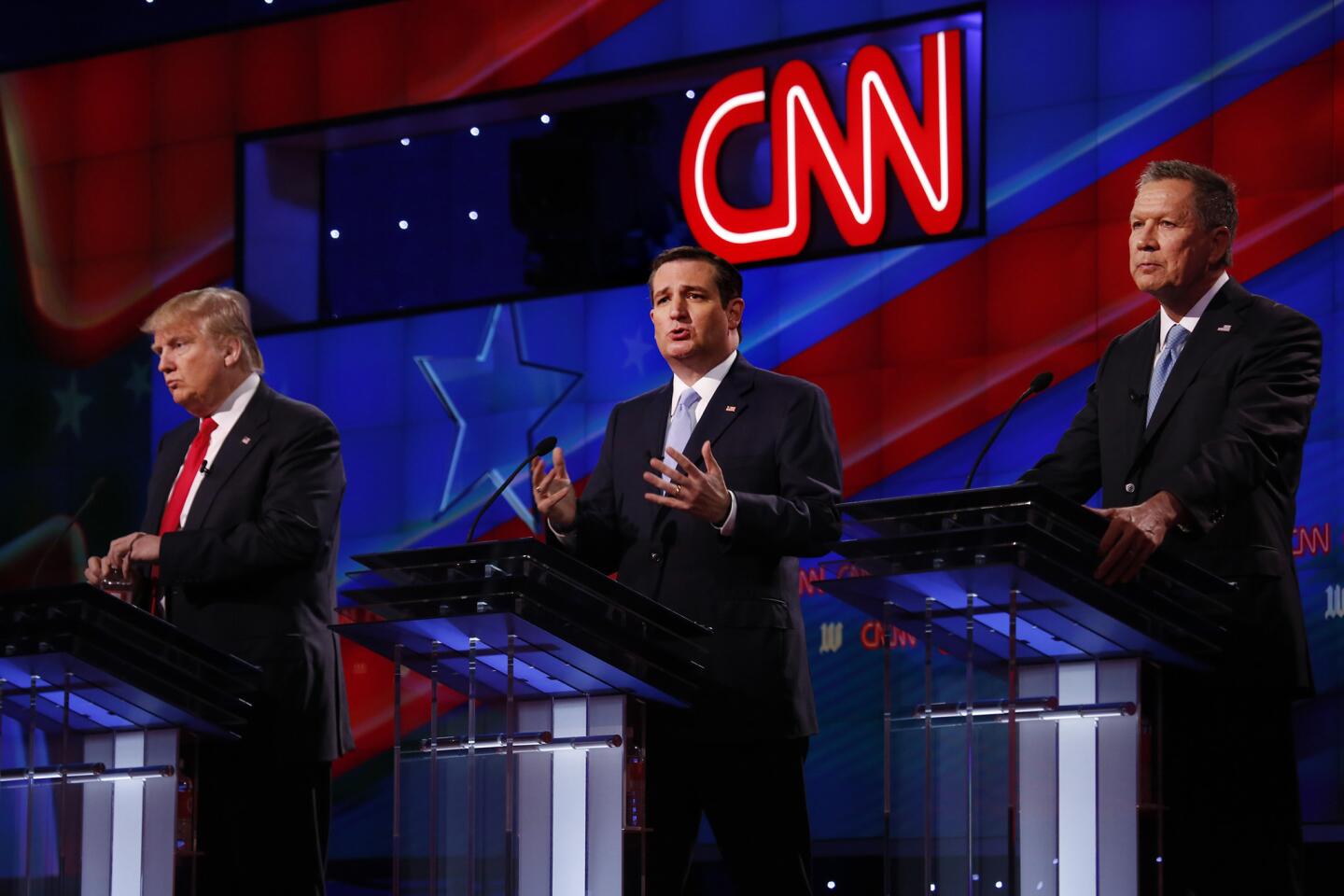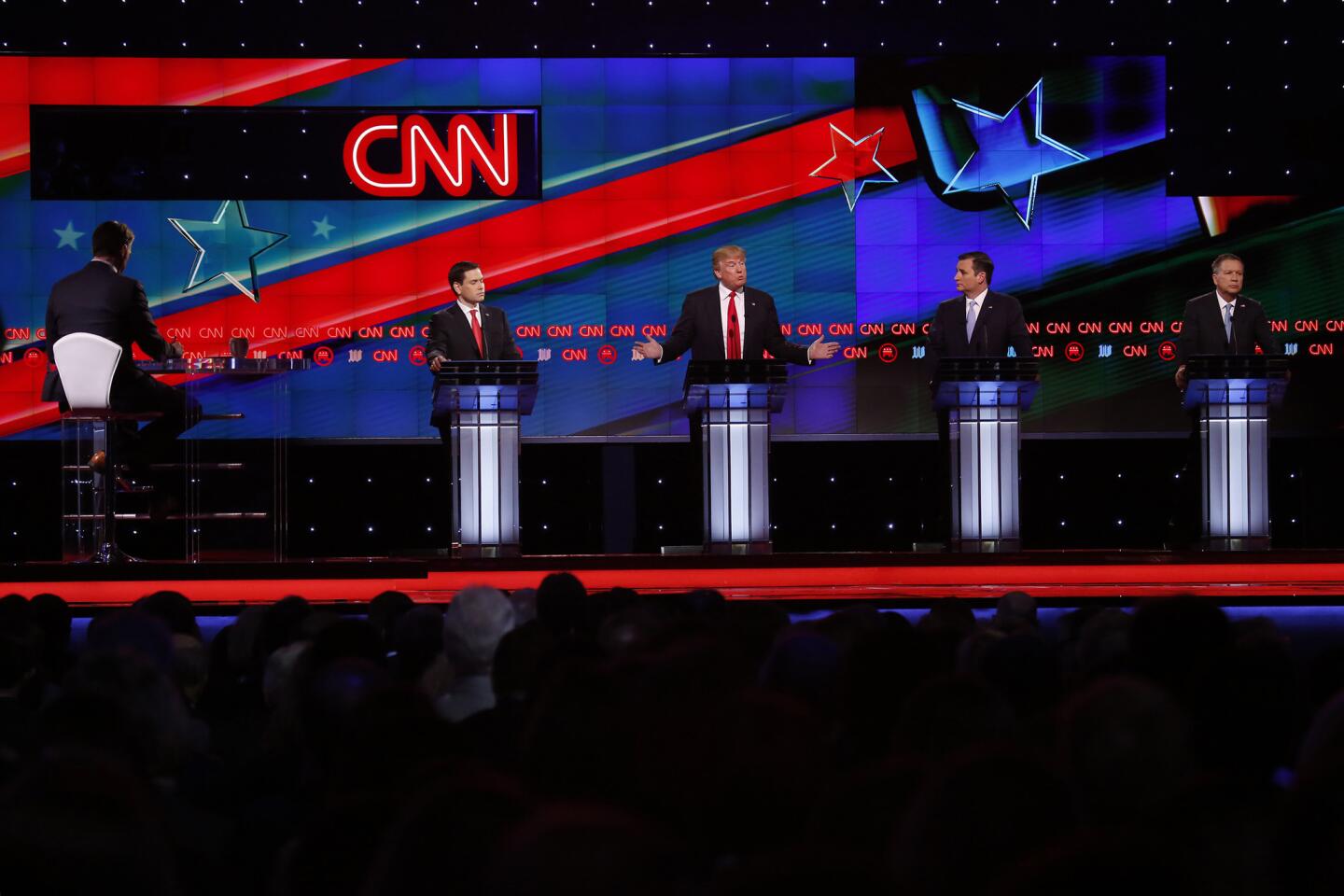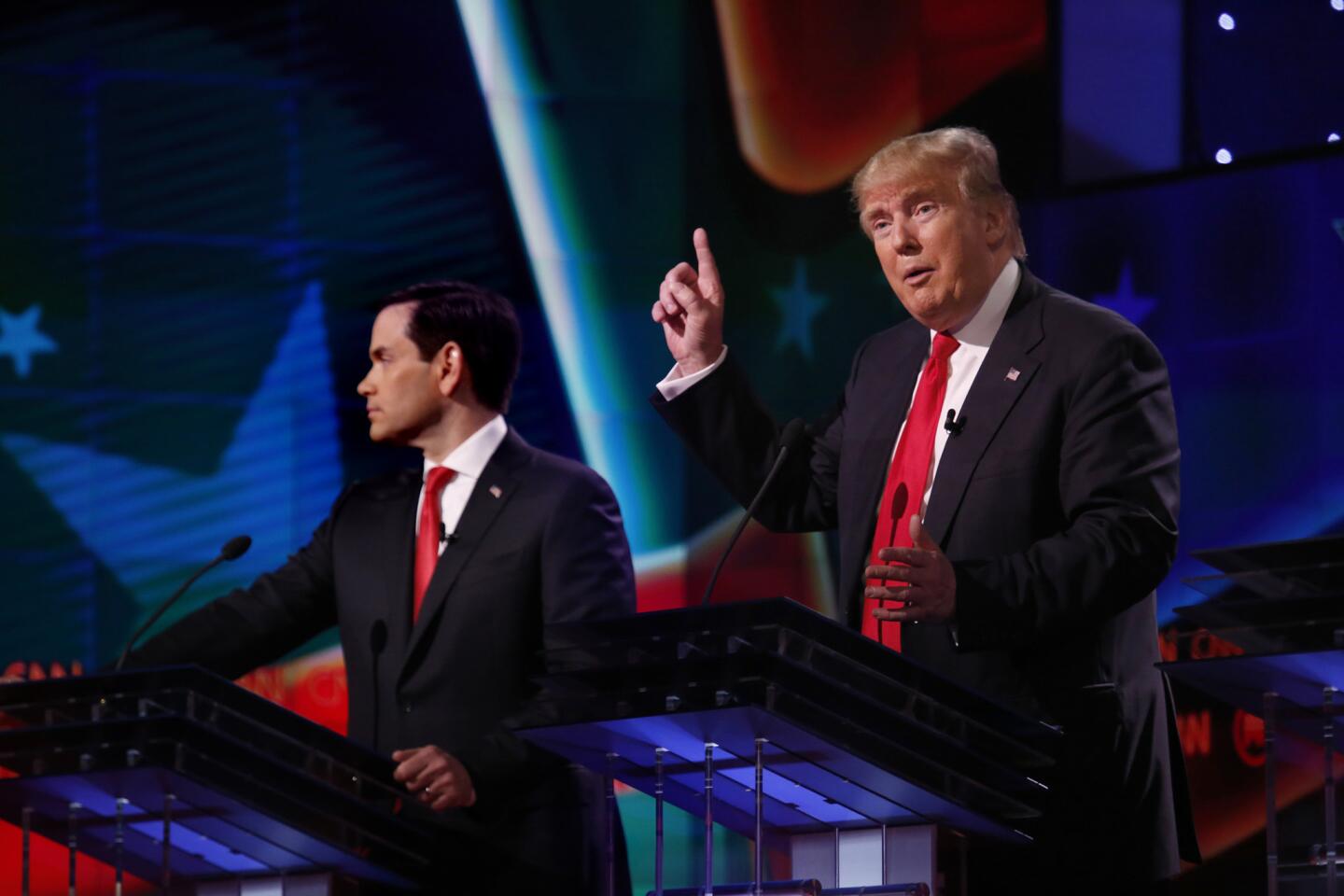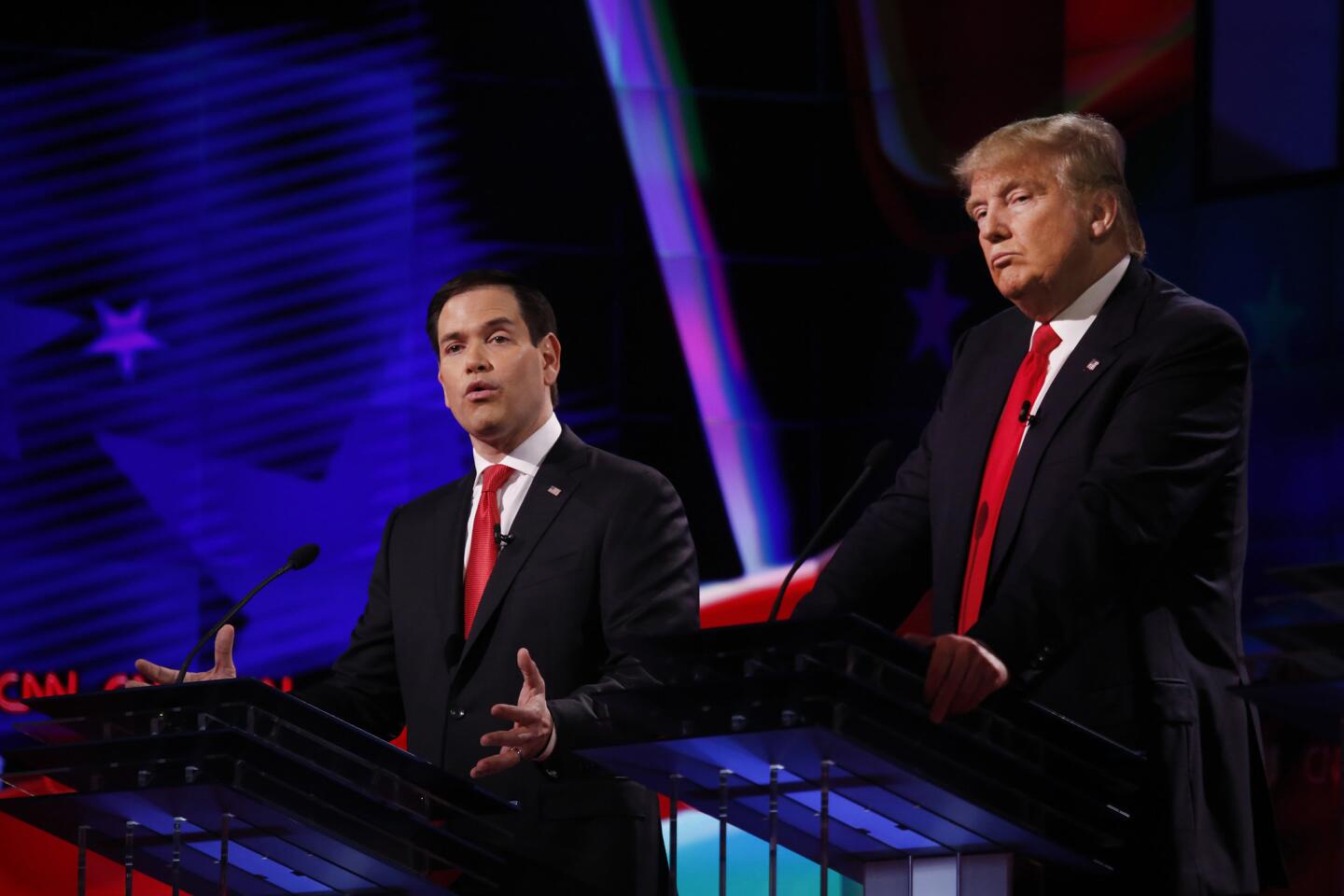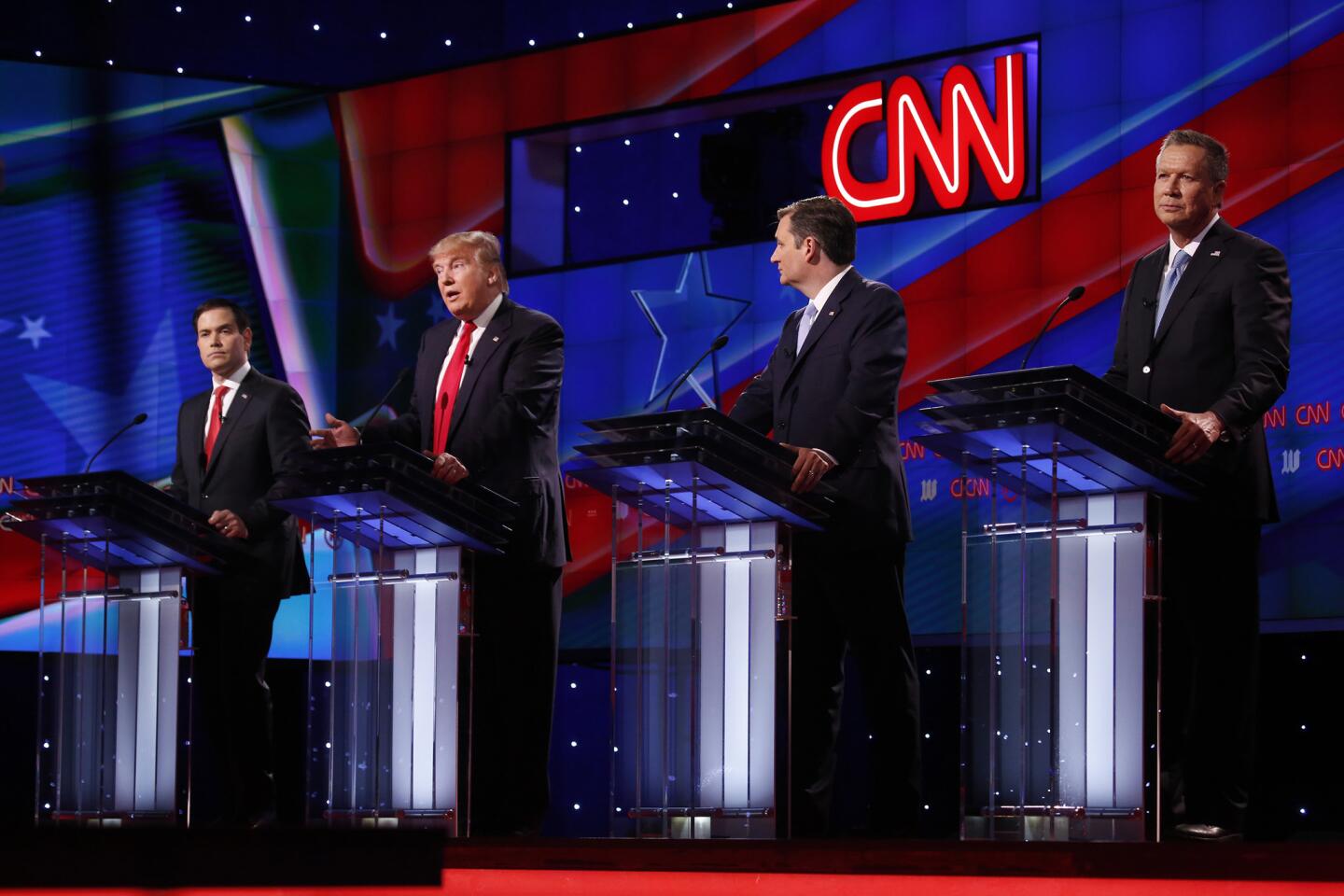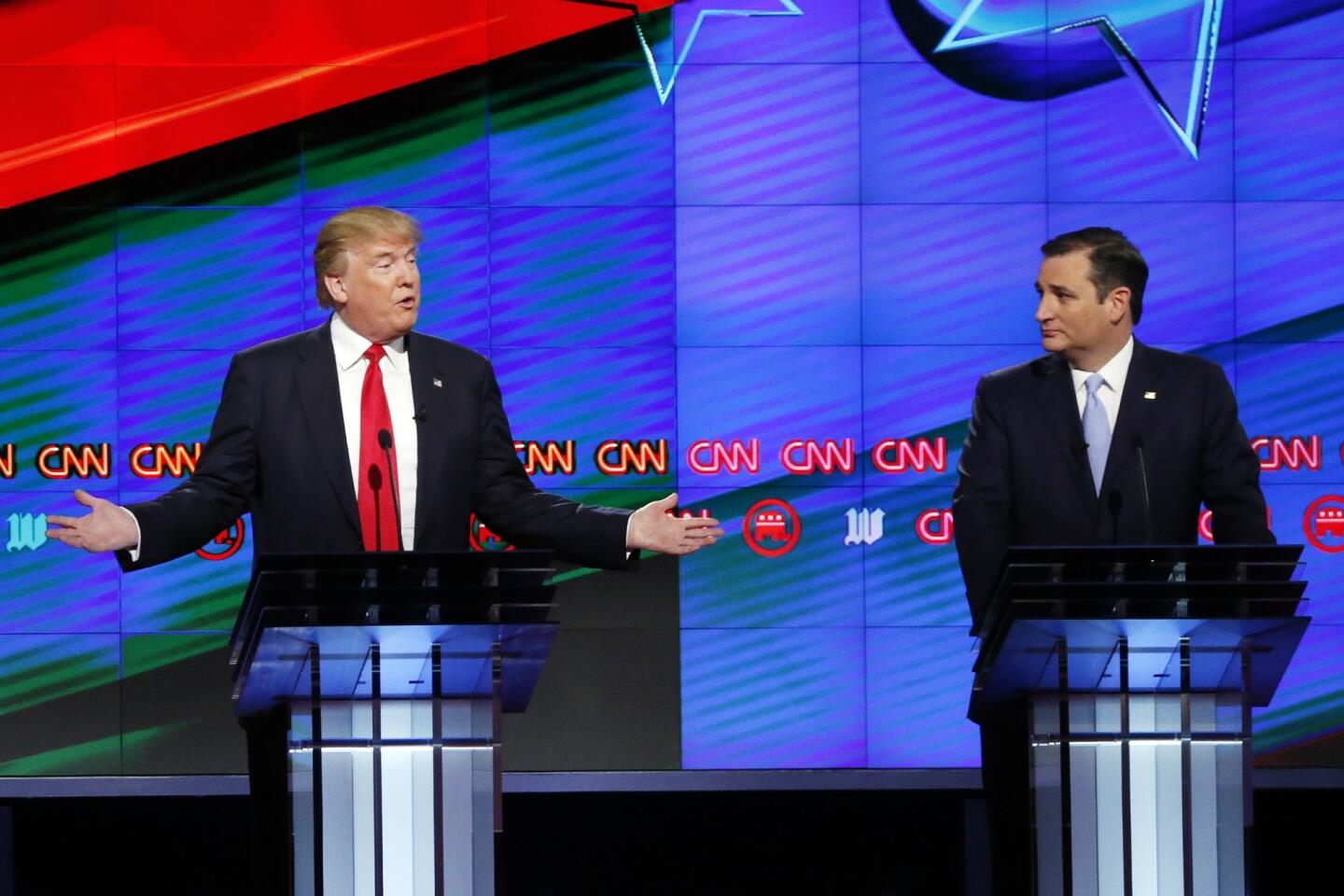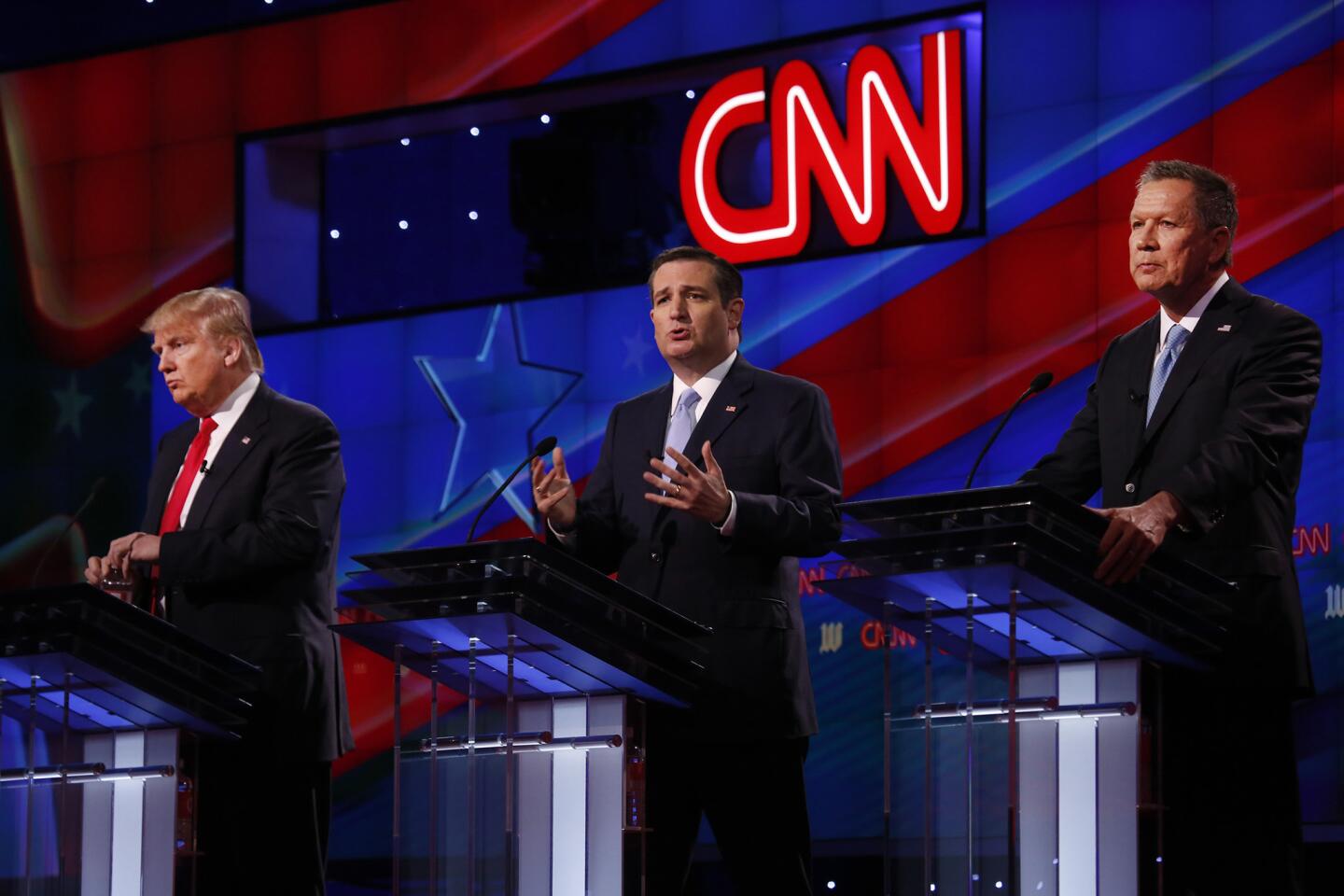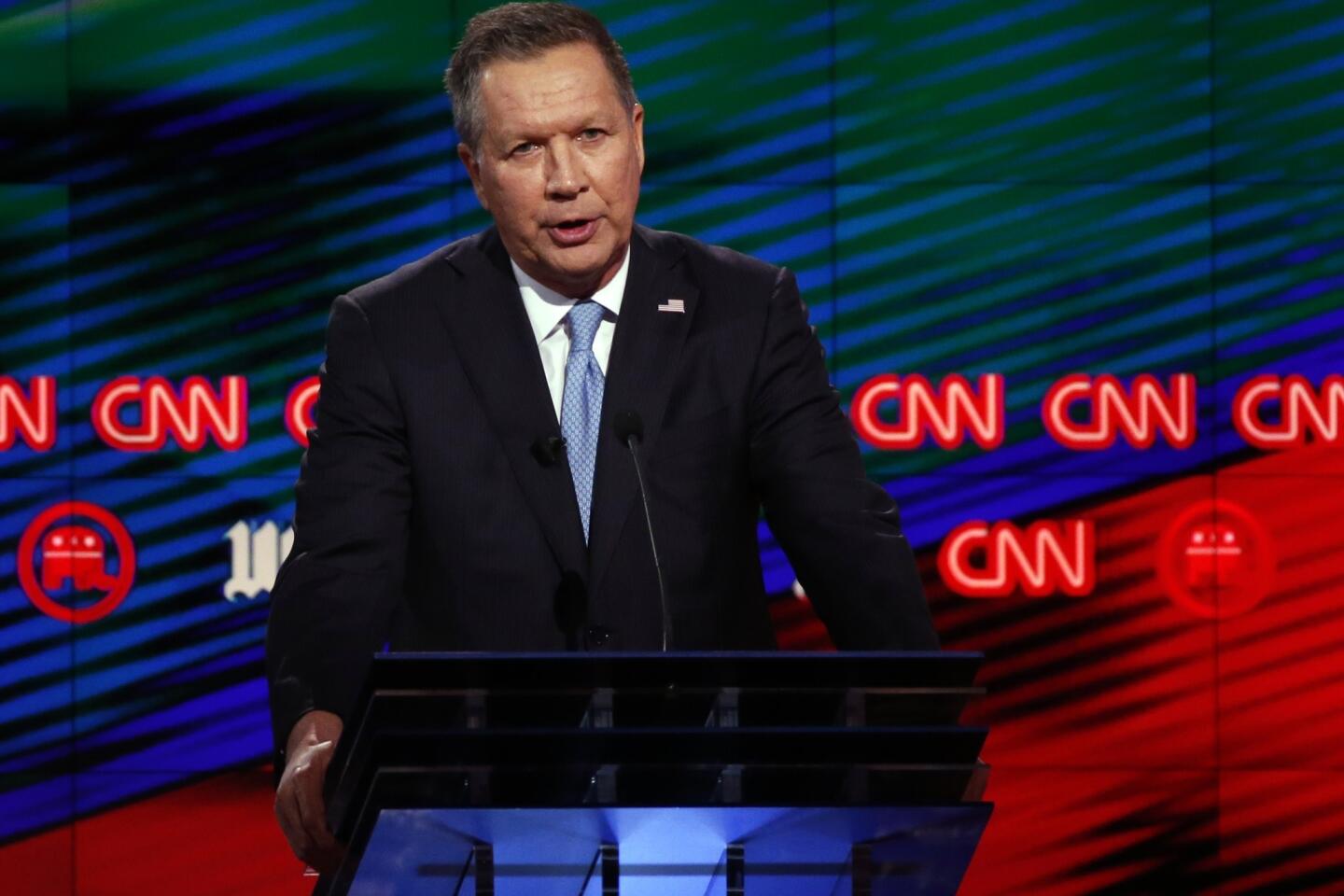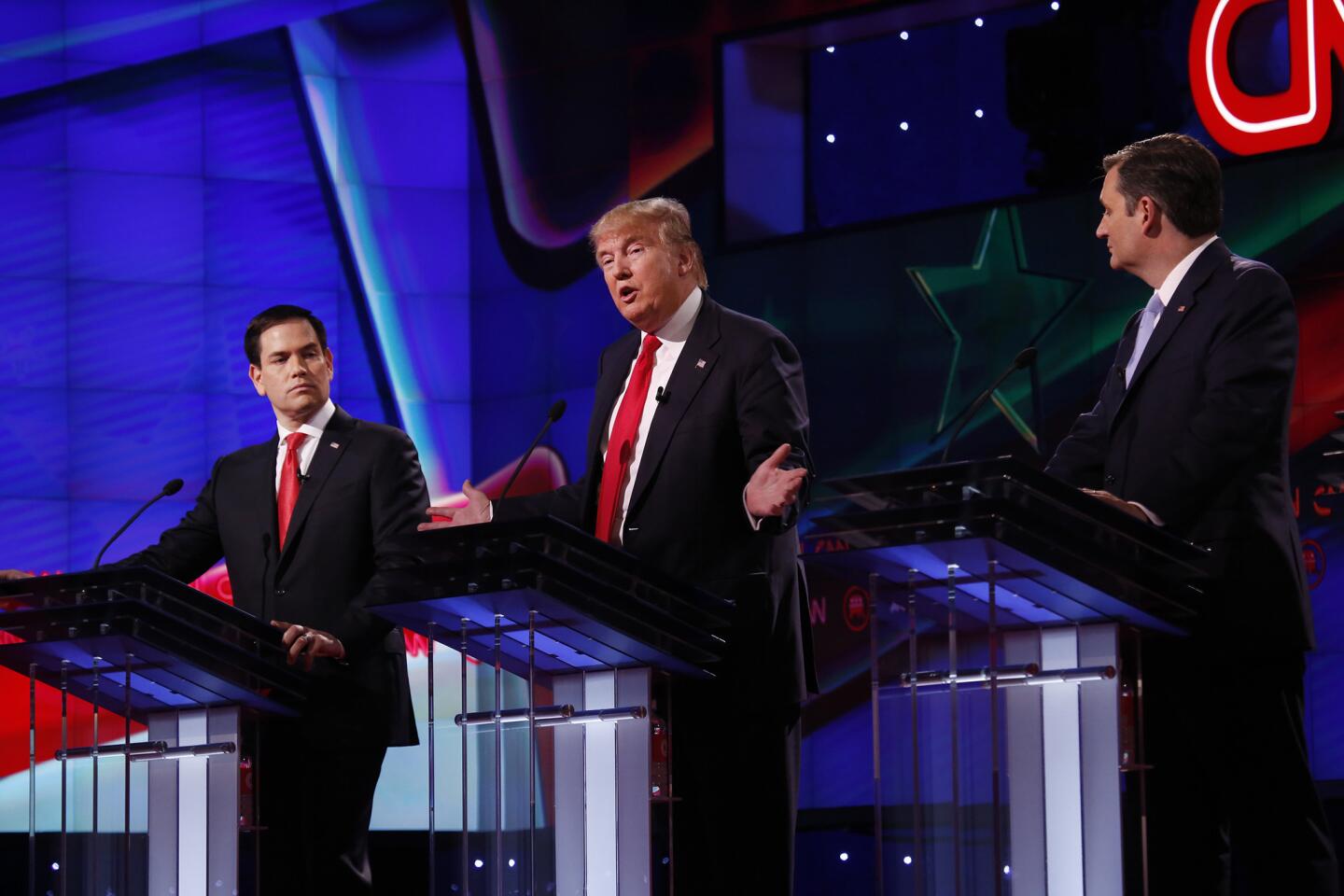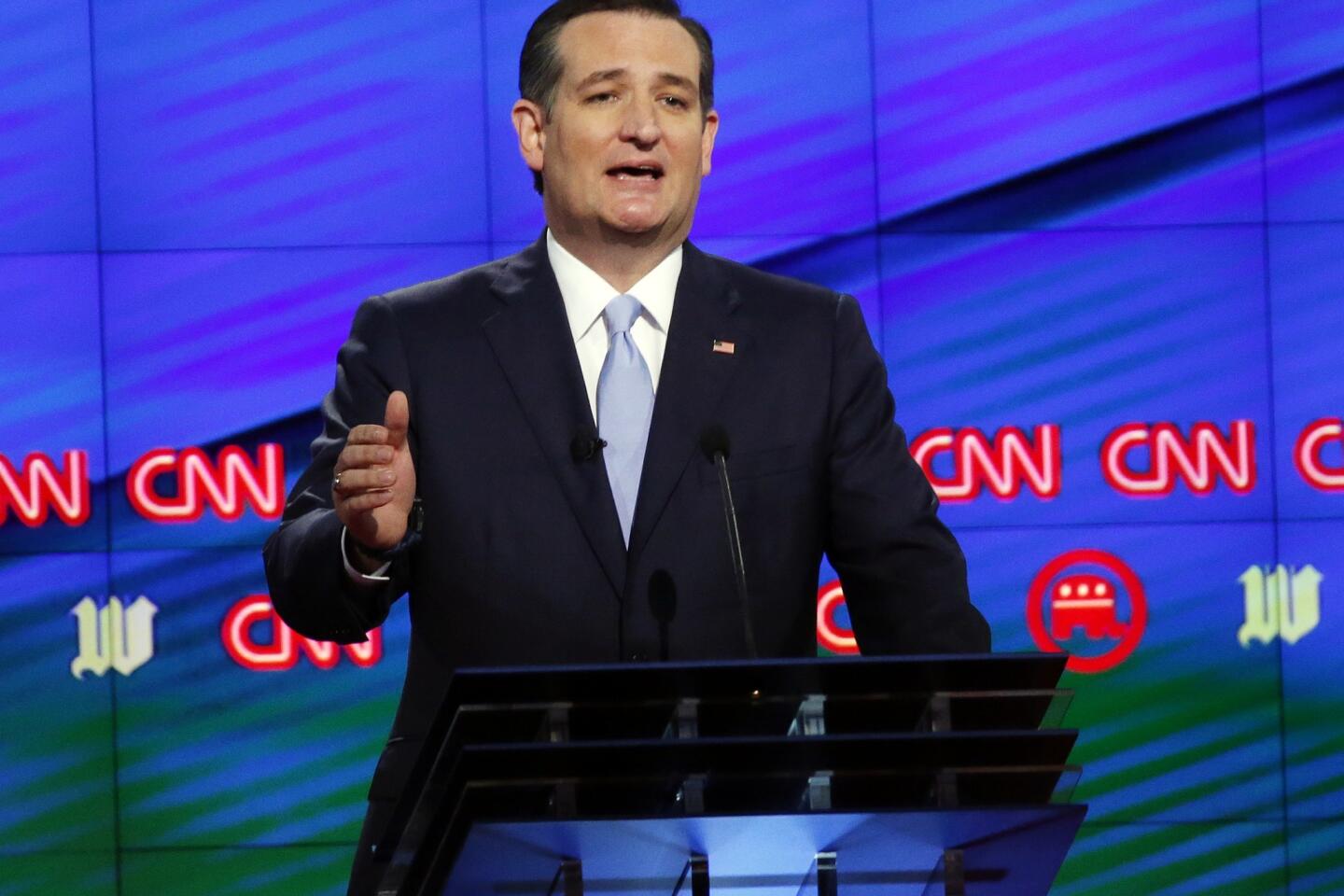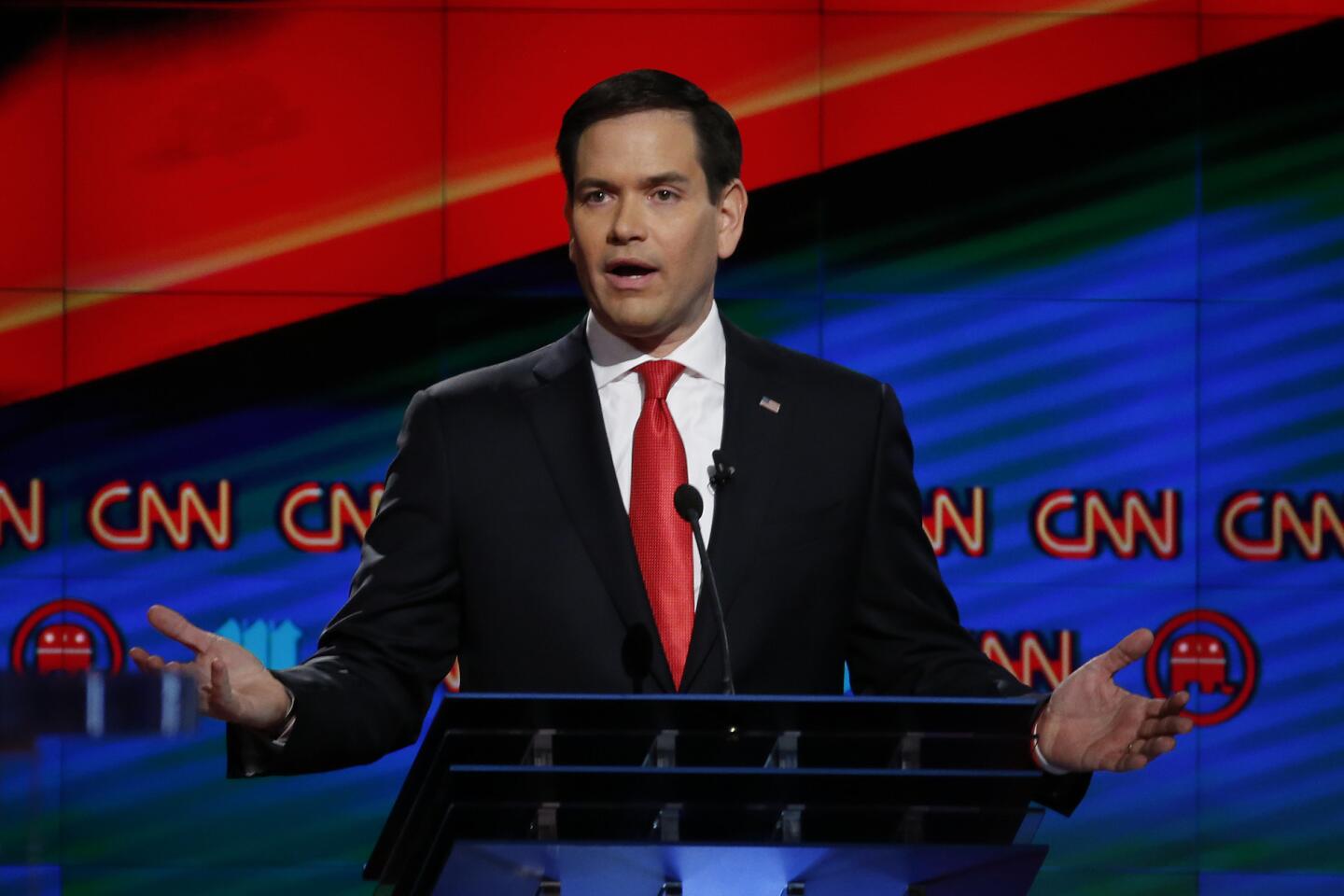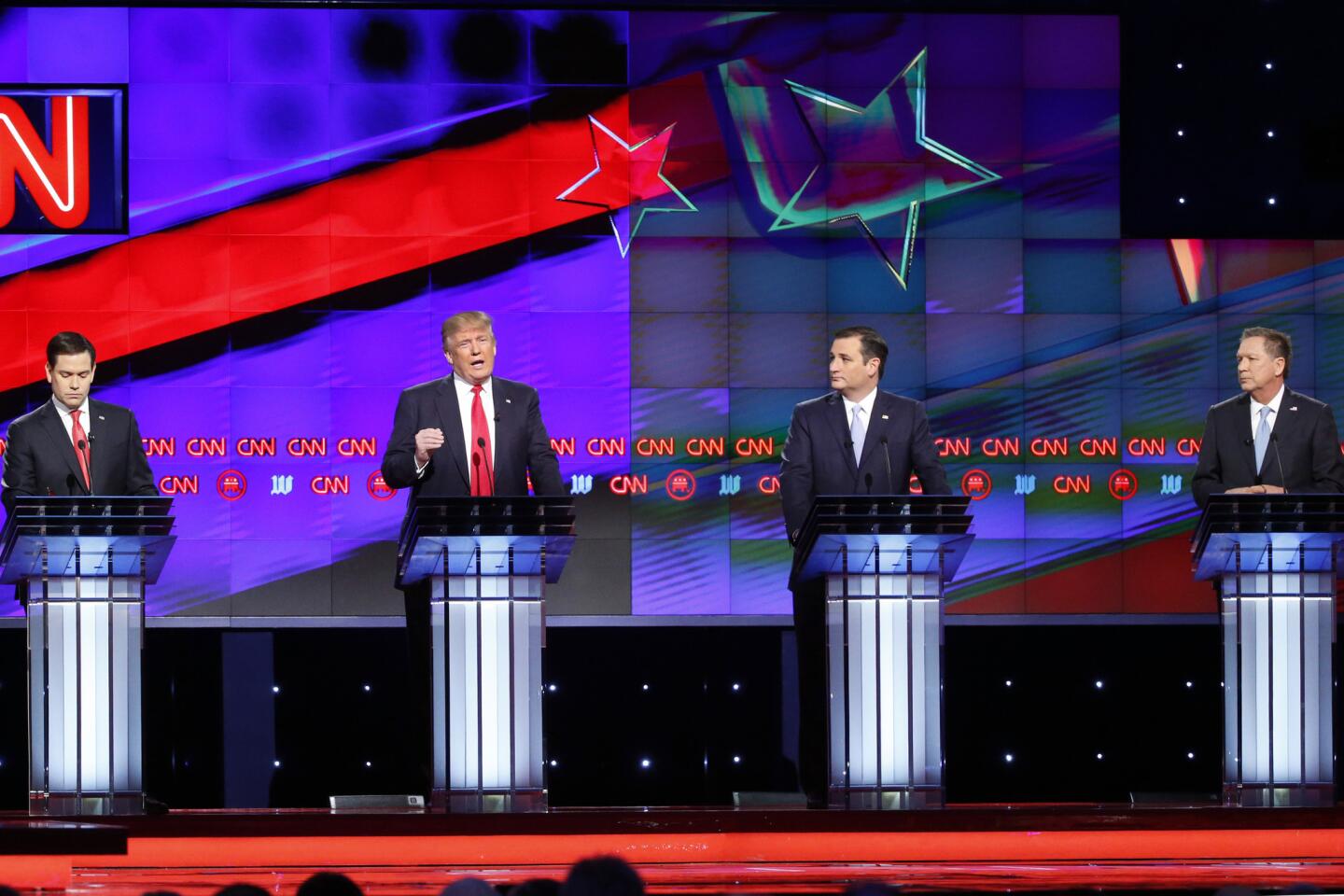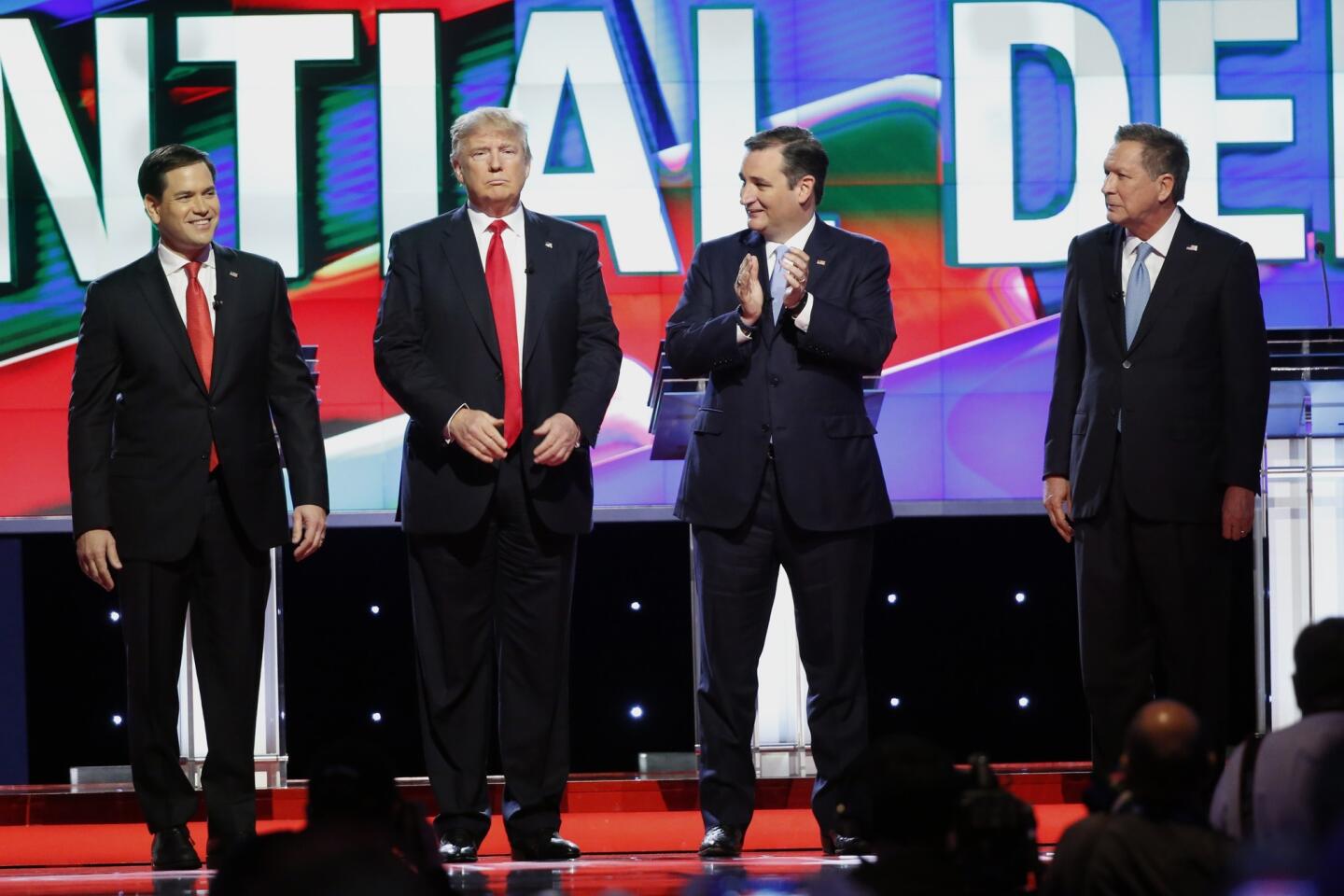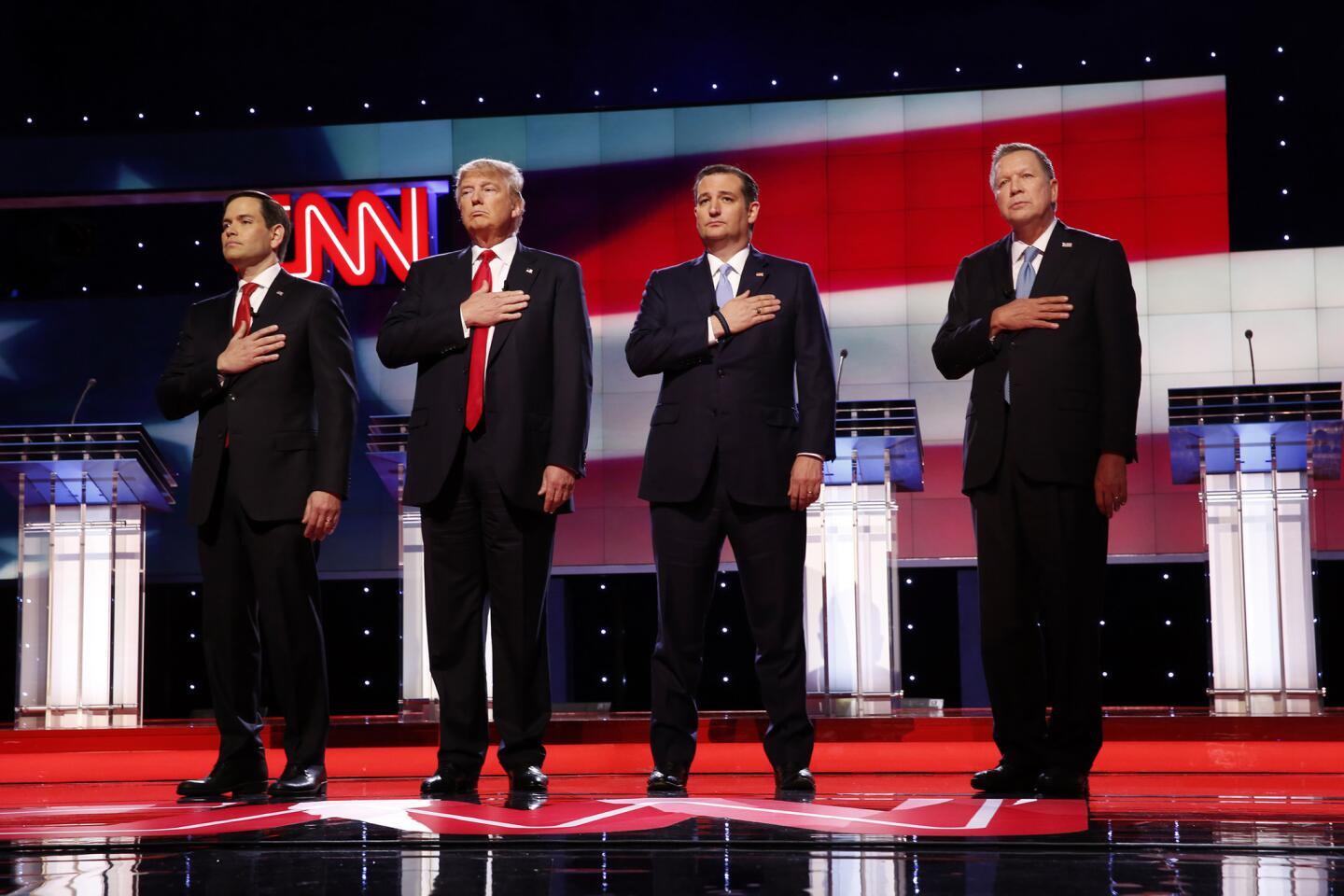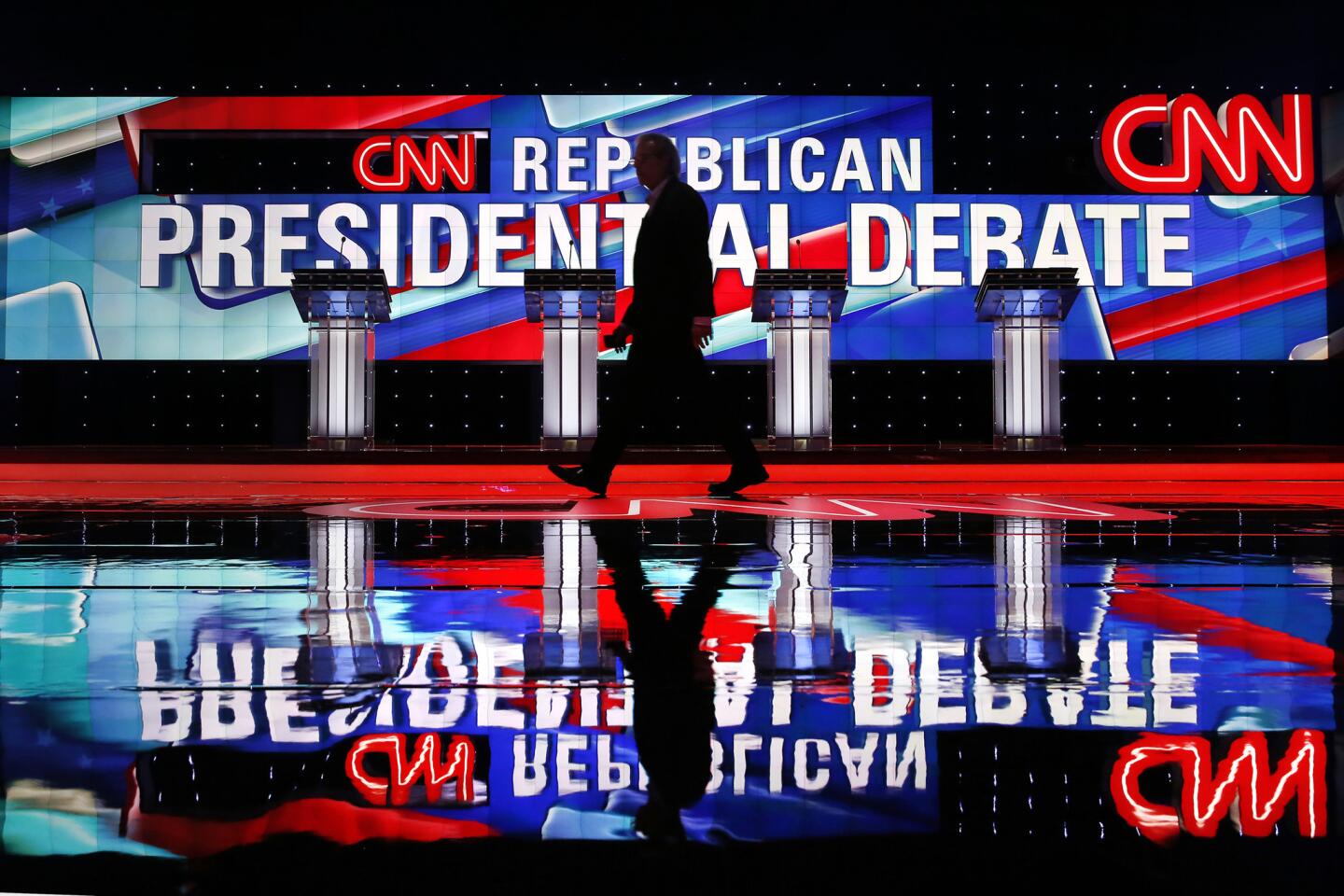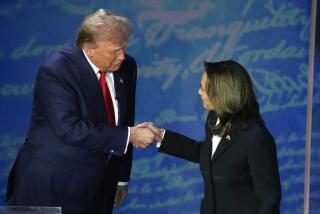GOP candidates clean up their act in last debate before primaries in crucial states
- Share via
REPORTING FROM MIAMI — A week after one of the most unruly debates in modern political history, the four remaining contenders for the Republican presidential nomination engaged in a polite parsing of their differences Thursday night over radical Islam, Social Security and other weighty matters.
There was no discussion of genitals, no schoolyard taunts, no candidates screaming to be heard over the shouting of others.
The two hours on a stage at the University of Miami in Coral Gables was one of the lowest-key sessions since the early, friendlier days of the GOP contest last summer.
“I cannot believe how civil it’s been up here,” Donald Trump, the front-runner for the nomination and chief instigator in previous debate-night brawls, marveled half an hour into the staid affair.
Held five days before a crucial round of primaries in Florida, Ohio and other big states, the debate — the 12th of the Republican contest — seemed unlikely to alter the direction of the race in any meaningful way.
Even though the bluster was gone and Trump remained subdued, the Manhattan businessman lost none of his swagger.
He suggested a willingness to send up to 30,000 U.S. ground troops to the Middle East to fight Islamic State militants, a dramatic escalation of the country’s military involvement.
“We don’t fight like we used to fight,” Trump said, a line he applied as well to trade negotiations and other facets of the country’s policies. “We need to fight to win.”
He reiterated his support for waterboarding and other outlawed “enhanced interrogation” techniques to fight terrorists, and would rewrite the law to do so. “Or we’re being a bunch of suckers, and they are laughing at us,” Trump said.
Asked about his comment a day earlier that “Islam hates us,” Trump repeated the assertion and suggested that anyone who felt differently was callow and a slave to “political correctness.”
Citing the Sept. 11, 2001, terrorist attacks, he said: “There’s tremendous hatred, and I’ll stick with what I said.”
“I’m not interested in being politically correct,” Sen. Marco Rubio of Florida responded evenly. “I’m interested in being correct.”
He said it was wrong to stereotype an entire faith and also counterproductive to alienate countries with large Muslim populations that are vital U.S. allies.
“We’re going to have to work with other Muslims … to defeat ISIS,” Rubio said, using a popular acronym for Islamic State.
Sen. Ted Cruz of Texas and Ohio Gov. John Kasich agreed. “We need a president who understands the national security interests of this country,” Cruz said, implying that Trump did not.
But the exchange struck none of the sparks seen in earlier debates, an obviously conscious decision by Trump, Cruz and Rubio, who had clashed harshly and repeatedly on the debate stage just seven days earlier.
Even when prodded by the moderators, they declined to engage as they had before.
Typical was the disagreement over Social Security.
Trump has broken with many conservatives by insisting there is no need to cut back on benefits for future retirees to preserve the program. “I will do everything within my power not to touch Social Security, to leave it the way it is,” Trump said.
Rubio warned that the program would go bankrupt without cuts, saying he would allow the retirement age to eventually rise to 70. He said Trump’s proposal to cut “waste, fraud and abuse” would fall well short of the changes needed to place the program on a permanently sound financial footing.
Cruz took it a step further, asserting that Hillary Clinton, the Democratic front-runner, also talks of cutting “waste, fraud, and abuse.”
“The answer can’t just be — wave a magic wand and say, ‘Problem go away,’” he added. “You have to understand the problems.”
When CNN co-moderator Dana Bash asked whether he was comparing Trump to Clinton — an obvious invitation to attack — Cruz said Trump would have to speak for himself.
Throughout the night the candidates agreed more often than they disagreed. On immigration, both Cruz and Kasich spoke of building a wall on the U.S.-Mexico border, Trump’s signature promise.
Kasich, though, took a softer tone, praising immigration’s role in the country and insisting that many of the millions of people here illegally would have an opportunity to stay — though not obtain citizenship — under his administration.
Trump was the focus for much of the debate. At one point, he was pressed to explain the outbreaks of violence at several of his rallies, including the assault of a North Carolina protester that was caught Wednesday on videotape. He said people “come with tremendous passion and love for the country” but also anger over all they see going wrong.
“But I certainly do not condone that,” he said of the attacks.
Trump has been known to depart from GOP orthodoxy on a host of issues, but on Thursday, he said he did not see himself as fundamentally remaking the Republican Party. He said he believed his views were “very similar” to many in the party, but acknowledged an exception.
“I am different in one primary respect, and that’s trade,” Trump said. “I feel that we have had horrible negotiators, horrible trade deals. The jobs in this country are disappearing, and especially the good jobs.”
His protectionist rhetoric marks a departure from the free-trade advocacy of many in the Republican Party, particularly business interests.
With his new above-the-fray stance, Trump at times acted as though the nominating fight was already over.
He noted that former rival Ben Carson planned to endorse him Friday, and used his opening statement to call for party unity — presumably around his candidacy.
The debate could be the last for Rubio and Kasich, both facing must-win contests in their home states Tuesday.
Even if they win — and Rubio is a significant underdog — it would be difficult to overtake Trump in the delegate count after his victories in 15 of the first 24 contests. Five states in all — Florida, Ohio, Missouri, Illinois and North Carolina — will hold primaries on Tuesday.
Despite the high stakes, Rubio has said in recent days that he regretted the nasty and personal tone of last week’s debate, at which he called Trump University — a now-defunct series of get-rich real estate seminars that is the subject of numerous lawsuits — one of several Trump-brand businesses that have ripped off consumers. He charged that the novice candidate lacked a serious grasp of or interest in foreign policy.
Trump shot back with full force, calling Rubio a lightweight and “little Marco.” He derided Cruz as “lyin’ Ted.”
In his opening statement Thursday night, Cruz suggested he’d had enough. The election, he said, was “not about insults and attacks” but the concerns of voters.
For at least two hours, that turned out to be the case.
Twitter: @Noahbierman
Twitter: @markzbarabak
Bierman reported from Miami, Barabak from Columbus, Ohio. Times staff writer Melanie Mason in Miami contributed to this report.
MORE ON CAMPAIGN 2016
CNN’s Jake Tapper expected more fireworks at the Republican debate
Influx of Puerto Ricans could be a game-changer in Florida
With Florida just days away, Rubio is all in, but some donors say he should quit now
More to Read
Get the L.A. Times Politics newsletter
Deeply reported insights into legislation, politics and policy from Sacramento, Washington and beyond. In your inbox three times per week.
You may occasionally receive promotional content from the Los Angeles Times.
